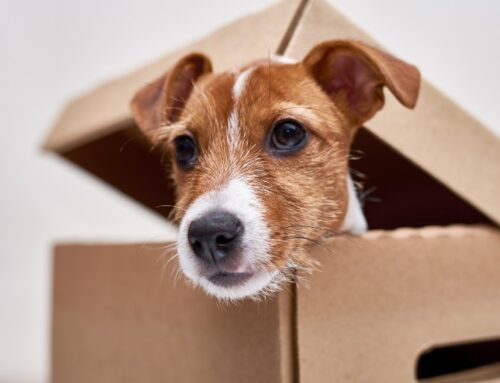No matter how many supplies your movers bring or how skilled they are, there will always be items your movers will not, or should not, take onto the moving truck with them. This can be for a variety of reasons including liability, fragility, potential to damage other items, or inability to be properly protected and secured. Knowing what your movers can take and what they cannot take will help you form a plan and reduce pre-move stress. In this article we will go over various items your movers may not be able to take on their moving truck – and potential options for transporting those items.
Liquids and Perishable Foods
Any professional and reputable moving company should, due to both liability and company interests, not be able to take any form of liquid or perishable foods. Liquids pose a danger as moving trucks tend to be rather bumpy and harsh ride, no matter how skilled the driver. Liquids will shift and pose a danger of tipping over or spilling out – potentially spreading to other furniture items in the moving truck. This, as you can imagine, is not an ideal scenario as most of your furniture items will now be wet and stained. This will also cause damage to the interior of the moving truck itself, leaving all parties involved rather dissatisfied. We recommend, under no circumstances, moving any kind of liquids with the rest of your furniture items on the same truck. This includes water, cleaning supplies, cooking liquids, gas, oil, etc.
Perishable foods also pose a liability as items may spoil, melt, or spill out when exposed to the conditions of a moving truck. The back of moving trucks tend to be rather hot and when combined with the bumpy ride could result in a potential disaster similar to liquids.
Unpacked fragile items
Some items must be properly packed in a box or appropriate material in order to be safely transferred. This usually involves items that are especially fragile or appear prone to damage. Items such as vases, picture frames, small antiques, glass of any kind, and other items of similar nature. Unless you have hired a professional moving company to both pack and move your belongings, you need to ensure items such as these are properly packed, in an appropriately sized box, in order to avoid any damage while moving. We recommend taking smaller fragile items in your personal vehicle with you – if possible.
Pianos and Pool Tables
Moving a piano or pool table requires specialized equipment and crew members who have received training for moving such items. Not all moving companies will be able to move your piano or pool table, so make sure you ask beforehand. Moving a piano or pool table also requires an additional amount of insurance as these pieces are of a much higher value than your standard furniture items. We always recommend hiring a third party company, dedicated solely to moving pianos or pool tables, as they will have all necessary equipment, tools, and expertise to safely move these larger and more valuable items.
High-end or Fine Art
Expensive or high-end art also poses a large liability to any professional moving crew. Art requires both specialized tools as well as a knowledgeable and skilled crew. The biggest risk when moving art is it shifting, becoming loose, or coming into contact with other furniture items on the moving truck. As most moving trucks are rather tight on space, in order to ensure items do not have room to shift about, expensive art has a high chance of coming into contact with something during transit and getting damaged.
There are third party companies dedicated solely to the moving of high-end and expensive art. These companies are usually one of the few places that will have the specialized tools, skills, and protective materials necessary to move such high-value items.
Especially dirty or damaged items
All professional and reputable moving companies should have Health and Safety standards in place and which they abide by. This is to protect the health of both the customer and the movers themselves. Items covered in animal feces, dirt, or other hazardous material may be refused by your movers. Having especially dirty items not only poses a health issue for our employees, but could spread onto the back of the moving truck and affect future customers. In order to avoid the mess spreading onto your other items, and to protect their own health, your movers do reserve the right to refuse any furniture items they deem excessively dirty.
Damaged items pose an additional liability as they may break to a greater degree, at no fault of the movers, during the moving process. Your mover’s also reserve the right to refuse any furniture that has been significantly damaged prior to their arrival. Damaged items have the potential to break while your mover’s are handling it, putting the movers safety in jeopardy. There is also a chance for the damaged items to break during transit while in the back of the moving truck – potentially coming into contact with an undamaged item and causing damage. All damaged furniture items should be properly disposed of prior to your movers arrival, if possible.
If damage is not too significant, or not in an integral place, your movers may be able to still move, or dispose of, your furniture item for you.
Specialty Items
Unfortunately, there are just some items that most professional moving companies cannot or will not move. Items of extreme value, for example, may need an additional insurance policy or a third party moving company, specializing in such pieces, in order to move. This includes most statues or pieces of art, collectors items, and high-value cars.
Other items may not be able to be safely secured in the moving truck, no matter what is done or how many furniture pads are used. This would include items of unnatural or oblong shapes. Items with sharp unexpected corners and no flat surfaces. Also, items that are excessively heavy may need a third party company or it cannot be moved. This includes safes over 1000 pounds, marble tops of any kind, and some appliances that are excessively heavy.




